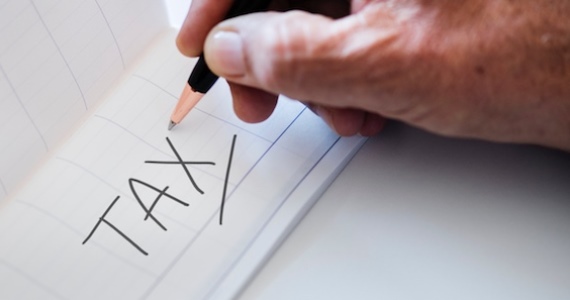When you dispose of an asset and make a capital gain, you may be liable for extra tax. There is no separate tax rate for capital gains. Instead, some or all of the capital gain is added to your assessable income and taxed along with your other income at your marginal tax rate.

Capital Gains Tax (CGT) – generally speaking
The CGT system is very complex but in general terms, for individuals, the capital gain can be discounted by 50% if the asset is held for at least a year. This means the effective tax rate is 23.5% for those on the highest tax rate. There is no discount for assets held less than one year. For companies, there is no discount and the full capital gain is taxed up to the maximum company tax rate of 30%.
Tax on superannuation funds works in the same way as that applying to individuals. However, when a super fund disposes of an asset, it qualifies for a one-third discount if the asset was held for at least a year. Super funds are taxed at a flat rate of 15%, so this means the effective tax rate is 10%.
Minimising CGT
There are extra advantages in a Self-Managed Super Fund (SMSF).
The major benefit is that you can plan when to dispose of an asset taking into account the effective tax rate. This may mean, for example, that if you have invested in a share that has appreciated rapidly, you may hold it longer to qualify for the one-third discount.
Another advantage is that you can control the amount of capital gain made in a year and match it against capital losses to minimise the net capital gain.
The lower tax rates in super mean there is a lower “tax cost” of selling before a year has passed. The maximum tax rate will be 15% rather than 47% if the asset was held as an individual or 30% in a company.
Trustees of many SMSFs find that the lower tax rate in super helps them to focus on buying quality assets rather than worrying about how much tax may be payable.
Eliminating CGT
As stated, superannuation funds pay tax at 15%, however, once a super fund starts paying a pension or other income stream, the assets are not taxed at all. All income and capital gains are exempt from tax.
If your fund holds a large asset like a property, the capital gain may be significant and the potential tax cost could deter you from selling. In a SMSF, you control when you dispose of the asset. For example, disposal of the asset once a pension has started can eliminate capital gains tax.
Of course, tax is not the only issue when making investments but it can “add cream to the cake” if it can be reduced or legally eliminated. If appropriate to your personal circumstances, a SMSF may provide excellent opportunities to do just that.
The rules governing SMSFs are very strict, so always seek professional advice to determine if you might benefit from these or other opportunities within those rules.
Please contact us on 03 9038 9449 if we can be of further assistance .
Source: www.ato.gov.au
www.ato.gov.au Super/Self-managed super funds/Investing/Tax on income Capital gains; SuperSelf-managed super funds/Super changes for self-managed super funds/Introducing a transfer balance cap of $1.6 million for pension phase accounts/ Transitional CGT relief
Important:
This provides general information and hasn’t taken your circumstances into account. It’s important to consider your particular circumstances before deciding what’s right for you. Any information provided by the author detailed above is separate and external to our business and our Licensee. Neither our business, nor our Licensee take any responsibility for any action or any service provided by the author.
Any links have been provided with permission for information purposes only and will take you to external websites, which are not connected to our company in any way. Note: Our company does not endorse and is not responsible for the accuracy of the contents/information contained within the linked site(s) accessible from this page


